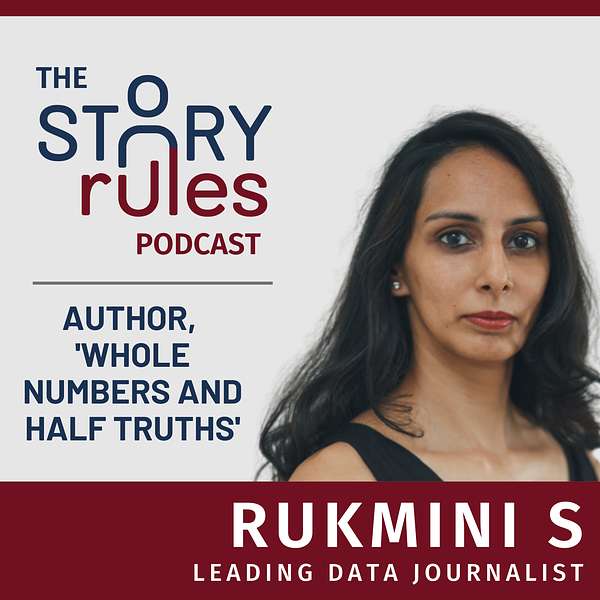
The Story Rules Podcast
The Story Rules Podcast
E20: Rukmini S - Author and Data Journalist
“If the process and the methodology for collecting the data isn’t clearly explained, it becomes that much easier to bat that data away. I find that the best estimates we have on consumption expenditure which show that in 2017-18, if you spent more than 8,500 Rupees a month as an individual it puts you in the top 5% of urban India. That’s something that people often push back against, find unbelievable, or want to say that “There are so many people I know who are spending this, that; you can’t tell me I’m in the top 1% of the country”, (I think that it) comes from us not being able to properly explain how these numbers were calculated and what goes behind it. Explaining to people “Is your objection that this is being missed? Let me show you how it is actually captured in the data,” “There’s all this black money – let me tell you how consumption doesn’t mean that black money isn’t captured.” I completely believe that there’s a failure of communication rather than a refusal to accept reality on people’s parts.”
That is Rukmini S, eminent data journalist and author of ‘Whole Numbers and Half Truths’ a seminal book that looks at India through the lens of data.
Quick – answer whether these questions are True or False:
1. Delhi has the highest rate of crimes against women in India
2. Most of India’s migration is rural to urban
3. UP is safer for women than many big states as per an NCRB report
4. India has a large middle class
5. You are a part of that middle class
If you answered ‘True’ for any of the questions above, you need to read Rukmini’s book.
I teach how to craft narratives with data and one of the things I used to take for granted was the ‘data’ part. Earlier on the podcast, when I'd interviewed Brent Dykes (author of ‘Effective Data Storytelling’), we discussed the importance of ensuring that the data part of the equation is tied up and not taken for granted.
And if you aren’t rigorous about getting the right data, you end up with narratives that may be divorced from the truth. Just like those True/False statements above.
But if those statements are not true, then what is the truth?
As per Rukmini’s book, the answer is, um, complicated. In a series of ten illuminating chapters, she covers a wide range of topics about India – from crime to education to income, to eating habits to how we vote and how we fall ill – and deftly unveils a truer picture of India.
In this conversation, Rukmini shares her approach to researching and writing the chapters. She shares her productivity approach of getting writing done during the pandemic despite being a parent to two young kids! She gives her nuanced take on India’s unique data architecture and why it’s in all our interests to safeguard and nurture it. Finally, she also shares the need for better communication and storytelling of data findings, especially if they seem to contradict the audience’s perception based on lived reality.
Let’s dive in.
Show Notes:
Rukmini S on Twitter, Instagram, Medium
Her book - 'Whole Numbers and Half Truths'
Her articles in The Hindu